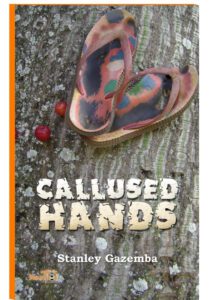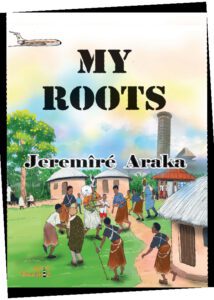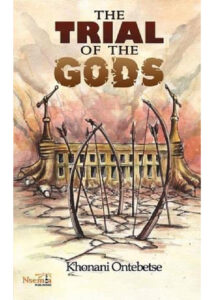
- Title: Shifting Sands
- Year: 2012
- Author: Moraa Gitaa
- Publisher: Nsemia Inc. Publishers, Ontario, Canada
- Reviewed on: February 7, 2013
If Moraa Gitaa had been born in Nairobi, she would be feted as the arch-spokesperson of the hobbling hobos from the dingy tenements of Eastlands – a people weighed down by pangs of want,  but who continue to a accumulate a critical mass of the conscientised. Nominated for the prestigious Penguin Prize for African Writing in 2010 and winner of First Prize in Adult Fiction (2008) from the National Book Development Council of Kenya, Moraa’s arrival on the Kenyan literary landscape as a major novelist lays to rest any doubts about the evolution of the African novel and the generational shift in literary expositions. Here is a writer with the patience, perseverance and discipline needed to create vivid characters. Here is a contemporary Kenyan writer capable of bedazzling and cajoling the reader with a skillfully written and scintillating narrative. She is the best among her contemporaries and perhaps the only novelist. Who in the bedlams of Kwani, Storymoja and Amka is doing full-length novels?
but who continue to a accumulate a critical mass of the conscientised. Nominated for the prestigious Penguin Prize for African Writing in 2010 and winner of First Prize in Adult Fiction (2008) from the National Book Development Council of Kenya, Moraa’s arrival on the Kenyan literary landscape as a major novelist lays to rest any doubts about the evolution of the African novel and the generational shift in literary expositions. Here is a writer with the patience, perseverance and discipline needed to create vivid characters. Here is a contemporary Kenyan writer capable of bedazzling and cajoling the reader with a skillfully written and scintillating narrative. She is the best among her contemporaries and perhaps the only novelist. Who in the bedlams of Kwani, Storymoja and Amka is doing full-length novels?
In her poem Tomorrow’s Daughters, South African poet Lebogang Mashile equates the creative impulse to “climbing through the wooden shed of isolation” where the “robin’s song robs the writer of her sanity.”Such has been the hallowed home of Senegalese novelist Mariama Ba, and the body of African women writers whose voices pervade the spheres of life as “autonomous creative agents” standing in opposition to the lethargic “passive victim” label, fashionable in media and in academic seminars, but challenged by the editors of the anthology African Women Writing Resistance: Contemporary Voices. Moraa Gitaa has claimed her place in that wooden shed of isolation, from where she now serves the world “a drink brewed in an African pot,” as Prof Wanjiku Kabira says of her latest novel, Shifting Sands.
Set on the coral island of Mombasa, the reader hears the feminine voice of the author; sensitive, tender, loving, caring and concerned. While in the background of the narrative is the Indian Ocean whose unending echo follows the author like her own shadow. The sea after all embodies life and death. Born and bred in Mombasa, Moraa has turned her childhood town, often derogatorily associated with lazy people, into an admirable site of creative mores. Shifting Sands is the melody of the island. That island is magical; one imagines every visitor to Mombasa having to read Shifting Sands to know the island. Moraa has the mastery of the English language. She embellishes the narrative with proverbs and idioms learned from different African communities. Above all, the solidity of the novel rests on research. If there is an unpretentious modern story about Mombasa, it is to be found in Shifting Sands. Unlike most of her contemporaries who are superficial, Moraa has distinguished herself as a serious writer. She is fearless and critical. She is a major writer from Kenya who deserves more critical attention.
Shifting Sands is a story of sisterhood, and shattered dreams. It is the story of being there for a friend when they need you most. The story revolves around four childhood friends drawn from different Kenyan communities; African, Arab and Indian. The girls defy their socio-cultural differences to cultivate lasting friendship devoid of ethno-racial prejudices. Moraa’s characterization is striking. She’s not in the habit of namedropping to claim cultural integration. Rather, she shows deep knowledge of her characters’ beliefs and cultural norms as seen in Shilpa’s letter written from Mumbai where the Indian has been exiled by her parents to stop her from marrying an African.
The narrator Kemunto is a puritanical ploy; strong conviction and incorruptible. She sums her travails thus: “every scar on my body is a heliograph of pain, written in bloodied Braille so that humanity, blind as they come, can touch and try to read my pain.” The pain of losing a husband because of doubting his fidelity; pain of losing a job because of refusing to sleep with your boss; pain of losing a close friend to death. Moraa’s thematic concerns range from religion, female circumcision, corruption, money laundering, drug trafficking, police brutality, Coast squatter question and such taboo subjects. Shifting Sands is a must read for literature students. The book is published by the Canadian based Pan-African firm Nsemia Inc. Publishers. It is available in Kenyan bookshops.
Khainga O’Okwemba is a columnist with The Star newspaper, and President of PEN Kenya, a member of the world association of writers.
Khainga O’Okwemba








